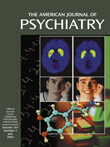To the Editor: We thank Dr. Soldani and colleagues for their comments on our recent publication. We agree that many patients with bipolar disorder do not profit from (or cannot tolerate) antidepressants. The dilemma that exists is how to continue to treat the small subgroup that does have a successful antidepressant response. The subject of our article was to preliminarily explore whether continuing antidepressant treatment or discontinuing treatment in this initially responsive subgroup resulted in any difference in outcome.
Pertinent to the methods concerns of Dr. Soldani et al., we examined a large number of potentially confounding factors that might mediate or moderate the initial unadjusted results. We had to narrow their number by some procedure that would allow sufficient power in the regression to appropriately examine the main hypothesis. To increase the likelihood of finding potentially important factors, we considered all potentially important variables without correcting for multiple comparisons, compared the groups on these variables, and examined their relationship to relapse. Variables such as those raised by Dr. Soldani et al. (bipolar subtype, substance abuse history, or other treatments such as mood stabilizers and other relevant factors related to treatment group assignment) were not significantly different between the groups (χ2<0.80, df=1 or 3, p>0.70). In addition, there were no DSM-IV-defined rapid cyclers included in our analysis because none met the study entry criteria for sustained response.
Dr. Soldani and colleagues state that the randomized controlled trial by Prien et al. (1984) contradicted our findings and that we chose to focus instead on a post hoc subgroup reanalysis
(1) that was consistent with our results. We are glad that Dr. Soldani et al. highlighted these studies because they merit attention and should be understood by the public. To our knowledge, the report by Prien et al. is the only randomized study that assessed maintenance strategies in bipolar patients soon after treatment for an acute index episode of either mania or depression. The primary analysis from that study assessed the outcome for the combined group. The second study
(1) was a reanalysis of maintenance treatment outcome as a function of the pole of the index episode. This reanalysis suggested that combination treatment (mood stabilizer plus an antidepressant) is the most effective maintenance treatment for patients after an index episode of bipolar depression. Our study results comport with these findings.
On the basis of our preliminary findings, we believe that clinicians should think carefully about the wisdom of discontinuing antidepressants in patients who are fortunate enough to have had an acute antidepressant response. However, a randomized controlled trial will clearly yield more definitive results regarding this issue, and we eagerly await the results of the randomized study of Ghaemi et al.

